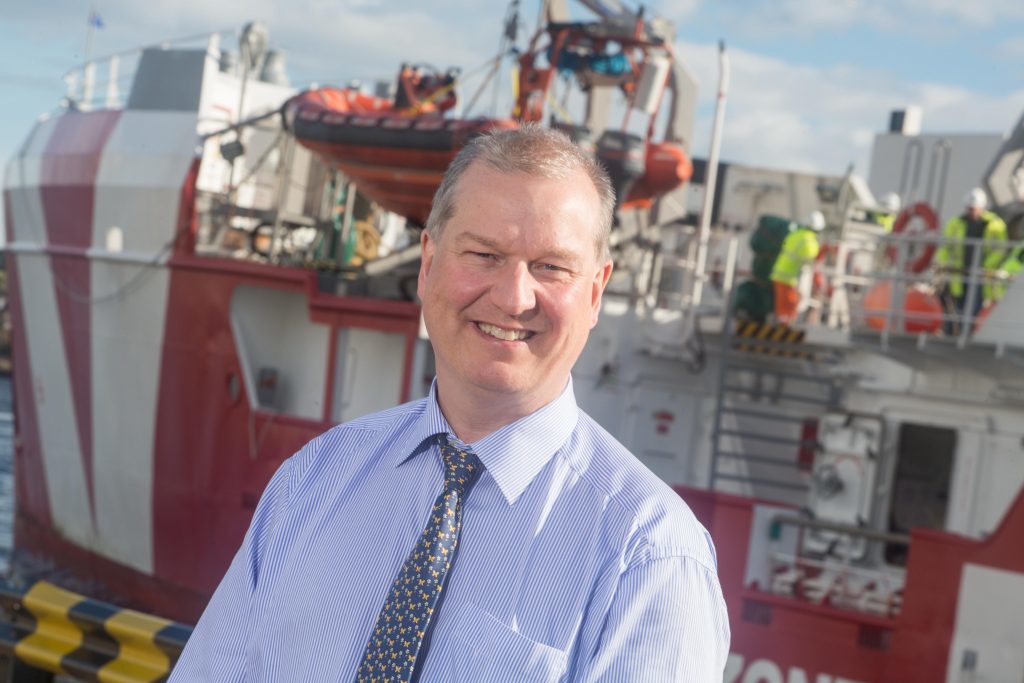
An Aberdeen offshore engineering services firm believes there is money to be made in the gap between well plugging and abandonment (P&A) and platform removal.
Apollo Offshore Engineering’s managing director said that while majors can decommission quickly, smaller operators’ balance sheets show many will need more time to gather funds.
Jonathan D’Arcy expects the lag to last more than a decade in many cases.
He believes operators will need help making sure the infrastructure is safe to allow them to defer spending on decommissioning.
“There’s probably going to be a large time gap between P&A and taking the platform away and that’s where asset integrity management comes into it,” Mr D’Arcy said.
“Shell has got deep pockets, but some of the newer operators in the North Sea are looking to generate revenues before they abandon platforms.
“I have no doubt those platforms will be there for decades not producing.”
North Sea industry chiefs have described decommissioning as a low-margin, one-off, demolition business, and are costing it for the next 30 years. The current cost estimate for North Sea decommissioning is £50billion through 2050.
Mr D’Arcy thinks the segment could make up the majority of Apollo’s oil and gas business in five to 10 years’ time.
He said clients have already approached Apollo, which was founded in 2010 and employs 52 people in Aberdeen, to say they are starting to think about decommissioning and the responsibilities it entails.
Though the UK Government is expected to pick up a large part of the tab, the cost burden on companies is still likely to be hefty.
“Decommissioning requires a lot of capital,” Mr D’Arcy said. “I think Apollo will have a future in that gap between P&A and removal, making sure things remain safe.
“You need to strengthen structures before you can remove them from the platform and we can do that.”
Well P&A, which Mr D’Arcy expects to account for about half of all decommissioning costs, is the main area Apollo will target.
On the infrastructure strengthening front, Apollo − which also has bases in Darlington, London and Nottingham − has already prepared a helideck for its removal from a North Sea platform.
Other types of work Apollo is focusing on include making sure infrastructure is properly isolated and that areas which need to be mothballed are safe.
“There are a lot of aging assets out there and a number of areas that need to be taken out of service, so we will look at how to make them safe,” Mr D’Arcy said.
“We’ve not been tasked with decommissioning a whole platform, but we are being asked how we can take parts out in a safe manner.”
Providing safe access to unmanned platforms from ships and jack-up rigs presents another opportunity.
“Helicopters are expensive,” Mr D’Arcy said. “Engineers might want to come out to platforms on a jack-up rig or a ship. With a simple modification we would design an attachment to the platform, and provide strengthening for access ways.”
Mr D’Arcy said that while demand for oil and gas held up, Apollo would continue to focus on optimising production.
He said: “We’re not going to become a decommissioning company. We’re just going to use our skills to help people safely take assets away or to leave them there safely, so that they can defer decommissioning costs.
“You just need to look at the balance sheets to know that companies might have the money in 10 to 20 years’ time, but they haven’t got it now.”

